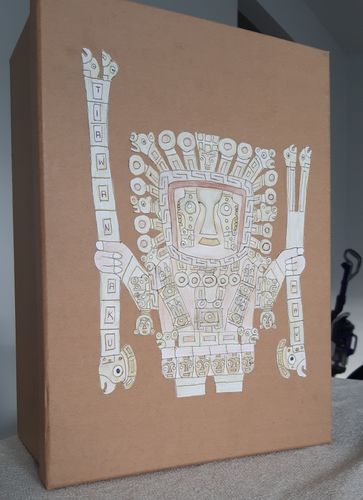|
Advertisement
|
Tiwanacu

DescriptionThe players are architects who, over nine rounds, will compete to build the greatest temple that the god Inti has requested. Each player will be drafting tiles, in order to score the most points at the end of the game. Will you build the legendary temple Tiwanacu and be rewarded by the gods?The game is played in 9 rounds. Every round, each player will receive tiles that he must place in his temple, to try to score the most points. At the end of the 9th round, players will add up all their points and the player with the most points is the winner. Each game two random God cards will be picked that will change some of the basic rules or add ways to score points at the end of the game.Round structure 1. Place tiles in each turn order position as indicated in the current round marker. The tiles that are where the row selector is, will be the active tiles and are available to purchase this round. The other tiles will be available next round. 2. Starting with the player in first place and following player order, each player takes his turn. 3. All the tiles available in the active row that were not picked, are returned to the box. 4. Move the row selector to the next group of tiles (if it was on top, move it to the bottom. And vice versa) 5. Move the round marker to the next space. After 9 rounds, the game ends. Player turns At the end of the game, players will score points depending on the layout of their board and the god objectives. Each type of tile score in the following way. Color Tiles (Red, Blue. Yellow and Green) Red tiles scoring in two ways:
After all types of tiles have been scored, each player will receive additional points for the following criteria:
Each player will receive negative points for the following criteria
Final score —description from the designer Game DiscussionsAdd CommentYou need to be logged in to comment. Insert Bullet List Please enter at least one item. Item: Item: Item: Item: Item: Insert Numeric List Please enter at least one item. Item: Item: Item: Item: Item: Insert Link Please enter the link of the website Optionally you can add display text Insert Email Please enter the email address Optionally add any display text Insert Image Please enter the link of the image Insert YouTube Video Please enter the link of the video Marketplace | ||||

Comments (0)